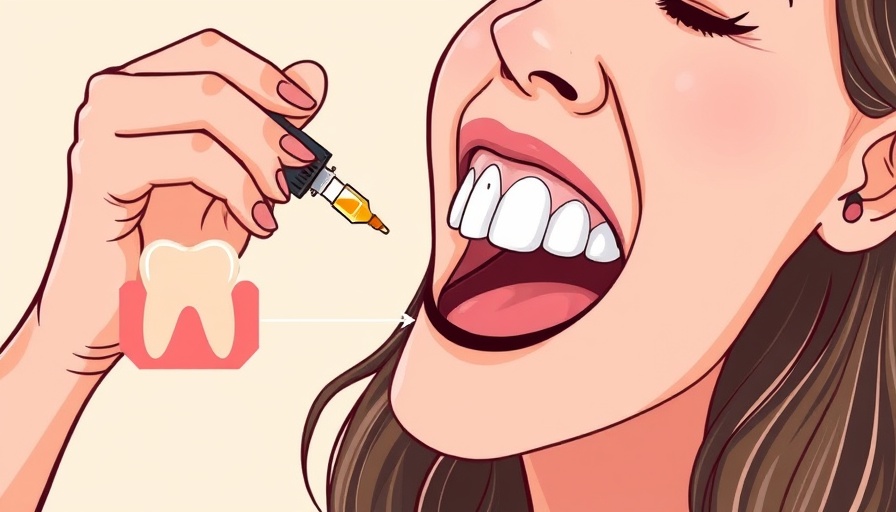
Unveiling Natural Toothache Remedies: What You Should Know
Tooth pain has a way of stopping you in your tracks. Whether it strikes late at night, in the middle of a workday, or while traveling, toothaches can distract you from essential activities, making it crucial to address them promptly. The throbbing or sharp pain can extend beyond the mouth, causing headaches and reducing your quality of life.
Common Toothache Causes and the Historical Context
Toothaches have become prevalent in modern society, yet they weren't always as common. Studies indicate that ancient populations had significantly fewer dental issues. So, what shifted? Several factors are at play, namely dietary changes with the rising consumption of high-fructose corn syrup (HFCS) and processed sugars, which facilitate tooth decay. Furthermore, industrial agriculture has resulted in mineral depletion in our soils, leading to a corresponding decrease in essential nutrients in our diets that promote strong dental health.
Natural Remedies That Work
Seeking alternative methods for managing toothache pain is becoming increasingly common. Here are some natural remedies that many people have found helpful:
- Clove Oil: Known for its analgesic properties, clove oil can provide immediate relief. Applying a drop to the affected area can help dull the pain.
- Saltwater Rinse: A warm saltwater mouth rinse can help reduce inflammation and clean the mouth, promoting healing.
- Garlic: With its antibacterial properties, crushed garlic can help eliminate bacteria in the mouth while providing pain relief when applied directly.
- Cayenne Pepper: When combined with warm water, this spice can create a paste to soothe irritation and reduce pain.
Conventional vs. Natural Remedies
While many individuals turn to traditional dentistry for tooth pain relief through fillings or extractions, others find their answers through holistic approaches. Understanding when natural remedies are appropriate can empower you to make educated decisions about your health. For instance, if a tooth abscess or severe decay is evident, professional intervention is paramount. However, for mild pain, these natural options can serve as effective relief until a visit to the dentist can be arranged.
Food and Lifestyle Choices Matter
The dietary habits driven by the prevalence of high-fructose corn syrup in many processed foods are key contributors to the increase in dental complaints. HFCS, often found in sodas and many snacks, leads to the proliferation of acid-producing bacteria in the mouth, which simultaneously erodes tooth enamel and contributes to the development of cavities.
Future Insights: Preventing Tooth Pain in a Modern World
As we continue to adapt to a world filled with quick fixes and sugary treats, the importance of examining our food choices grows. Reducing the intake of processed sugars and prioritizing a balanced diet rich in whole foods may prevent dental issues for generations to come. It’s time to recognize the correlation between what we consume and our oral health outcomes.
Embracing a Holistic Oral Care Routine
Incorporating these natural remedies into your day-to-day routine alongside regular dental check-ups can create a balanced approach to oral health. This might include limiting the intake of foods high in HFCS, educating yourself about potential allergens, and exploring the use of herbs and spices known for their health benefits.
Take Action for Your Health Today!
As you consider these natural remedies and their potential benefits, remember that while they can alleviate symptoms, they are not substitutes for professional medical advice. Stay informed, and don’t hesitate to consult a healthcare professional when needed. Empower yourself with knowledge, and take proactive steps towards maintaining your oral health!
 Add Row
Add Row  Add
Add 




Write A Comment